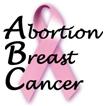What is Recall Bias?
The first kind of bias is called recall bias or reporting bias. It pertains to the bias that a patient allegedly has when answering the following question, "Did you ever have an induced abortion?" Some scientists have theorized that breast cancer patients are more likely to honestly report any abortions that they might have had than healthy women are (i.e. a bias between breast cancer patients and healthy women). This theory has been offered as an explanation for the studies linking abortion with breast cancer. If this phenomenon exists, then the findings in those studies reporting an increased risk of breast cancer among women having an abortion history -- as opposed to a decreased risk among women without an abortion history -- would not be authentic.
If this hypothesis is true, then any epidemiological study relying on retrospective data, as opposed to prospective data could be faulty. Retrospective data are obtained through interviews and/or questionnaires by looking back at women's reproductive history. On the other hand, prospective data are obtained through the use of medical records recorded when an abortion takes place.
It has been argued that if there was such a phenomenon as recall bias, then many thousands of epidemiological studies examining the relationship between a disease and any controversial risk factor could be called into question. 1 For example, studies examining any one of the following risk factors would be problematical: 1) the link between cervical cancer and the number of sexual partners a woman has had; 2) the link between liver cancer and alcoholism; and 3) the link between AIDS and the number of homosexual partners a man has had.
RESEARCHERS FIND NO EVIDENCE OF RECALL BIAS
Dr. Brind Claims Swedish Researchers Covered-Up ABC Link
Recall bias, however, has not been shown to exist by any researchers in abortion-breast cancer research. In the only study claiming to find direct evidence of it, Dr. Olaf Meirik found himself in the preposterous position of having to explain why seven breast cancer patients reported they'd had abortions which the computer said they'd never had. In other words, 27% (7 out of 26) of the patients in this group (the group which said they had had any abortions) allegedly lied and overreported their abortion histories, an assertion which is difficult to believe. The study was funded by Family Health International. Its authors hypothesized that, "...a woman who had recently been given a diagnosis of a malignant disease, contemplating causes of her illness, would remember and report an induced abortion more consistently than would a healthy control." 2
Dr. Chris Kahlenborn, who authored the book, Breast Cancer, Its Link to Abortion and the Birth Control Pill, criticized the Meirik hypothesis. He asked, "Why was this the working hypothesis instead of its direct counterpart?" He suggested a more appropriate hypothesis and argued, "....why did these authors not originally hypothesize that a woman who has breast cancer might be less candid about her recall of abortion? After all, 'denial' is one of the first reactions that patients have. When a woman is told that she has breast cancer it is not uncommon to deny to herself that she really has it. It would seem just as logical to think that such women would be more likely to deny factors that may have contributed to the breast cancer such as abortion and/or early oral contraceptive use." 3
Dr. Joel Brind's team was also highly critical of the Meirik group's claim of overreporting. In a letter published in 1998 in the Journal of Epidemiology and Community Health, Brind identified serious errors in Meirik's study, and proved that that group had covered-up an abortion-breast cancer link in Norwegian women. 4 To read Dr. Brind's commentary about the recall bias hypothesis, see his lecture on our "ABC Link" page.
No Direct Evidence of Recall Bias Among Greek Women
Others tested for reporting bias and found no direct evidence of it. 5 6 7 8 9 Lipworth's group addressed recall bias among Greek women by completing a literature review. They determined that even before legalization of abortion in Greece there was no social stigma against it, and it was practiced extensively. Lipworth's team theorized that a control group of healthy Greek women would be more likely to be honest about their reproductive histories. The team reported a 51% increased risk of breast cancer among Greek women. 5
Janet Daling's Studies Report Lack of Response Bias
Janet Daling tested for recall bias in her 1994 study, the only published study specifically commissioned by the National Cancer Institute. She found an overall 50% increased breast cancer risk among women who reported having had an abortion. Daling completed a separate study to test for recall bias in the study population. She chose another disease which was known not to be linked to induced abortion -- cervical cancer. She hypothesized that, if recall bias existed, then patients with cervical cancer would be more likely to report having had an abortion than healthy controls; and an apparent elevation in risk would result. If, however, recall bias does not exist in the study population, then an elevation in risk would not appear.
Using the methods that were employed in the breast cancer study to identify subjects in the same geographic area, Daling's results reported no elevation in risk of cervical cancer from induced abortion. Therefore, she concluded that her methods were not influenced by recall bias. 6
The Daling group conducted another test for response bias in a study reported in the American Journal of Epidemiology in 2000. Researchers collected birth records in Washington. The records contained reproductive histories furnished by the mothers at the time of the most recent childbirth, and these were compared to the reproductive histories reported by the subjects during the study interview.
Daling showed that both patients (cases) and healthy women (controls) were underreporting their histories of induced abortion at the birth of their last child. Slightly less than 60% of the subjects in both groups, who said at the time of their interviews that they'd had an abortion, had also reported the abortion at the birth of their last child. More importantly, Daling demonstrated that there was no difference in underreporting level between cases and controls at study interview. She reported that 14.0% of the cases and 14.9% of the controls said during their interviews that they had not had abortions, which they had reported at the birth of their children. No difference in the level of underreporting means that there was no response bias between breast cancer patients and controls.
Daling said that her findings are compatible with the findings reported in two other studies examining reporting bias. 8 9
PROSPECTIVE STUDY REPORTS INCREASED RISK
A prospective study (i.e. a study in which even the possibility of response bias is non-existent) completed by Howe in 1988 relying on fetal death certificates filed in New York State at the time of abortion reported a statistically significant increased risk of 90%. 10
Scientist Proposes a More Logical Theory than Recall Bias
Professor Joel Brind of Baruch College has proposed a theory that makes far more sense than does report bias theory. Ironically, a study funded by the U.S. National Cancer Institute (NCI) and the California Department of Health Services, Mahue-Giangreco et al. 2003, provides evidence for this better alternative. 11
Brind argues that, of all the ABC studies, Mahue-Giangreco et al. had the largest number of eligible patients who refused to participate as study subjects (11.5%). What would cause so many patients to refuse to participate, other than their desire to keep their abortions secret? Wouldn't it be more reasonable to hypothesize that women who don't want to reveal their abortion histories would choose not to participate in a study exploring an ABC link in the first place? Does it make sense that women would agree to participate and then choose to lie about their abortion histories? Therefore, isn't it reasonable to assume that women who've had abortions would be under represented in the study's patient group? If so, then how would this impact scientists' findings?
Brind has suggested that the prevalence of induced abortion among patients in the study should have been 30% higher than what it was. This would accurately reflect the prevalence of abortion in California during the years when most of the abortions in the study were performed. If the appropriate number of post-abortive patients had participated in the study, then researchers would have found a 20% increase in risk, instead of finding a null relationship between abortion and the disease.
- 1. Lindefors-Harris BM, Eklund G, et al., Response bias in a case-control study: analysis utilizing comparative data concerning legal abortions from two independent Swedish studies. Am J Epidemiol. 1991; 134: 1003-1008, p. 63.
- 2. Lindefors-Harris BM, Eklund G, et al., Response bias in a case-control study: analysis utilizing comparative data concerning legal abortions from two independent Swedish studies. Am J Epidemiol. 1991; 134: 1003-1008, p. 1003.
- 3. Chris Kahlenborn, M.D., Breast Cancer: Its Link to Abortion and the Birth Control Pill, One More Soul, 2000, p. 62, emphasis original.
- 4. Brind et al, J Epidemiol Community Health, 1998, 52:209-11.
- 5. a. b. Lipworth L, Katsouyanni K, Ekborn A, Michels KB, Trichopoulos D, Abortion and the risk of breast cancer: a case-control study in Greece, Int J Cancer, 1995: 61:181-4.
- 6. a. b. Janet R. Daling et al., Risk of Breast Cancer Among Young Women: Relationship to Induced Abortion, 86 Journal of the National Cancer Institute; (1994);1584.
- 7. Tang et al, Case-control differences in the reliability of reporting a history of induced abortion, Am J Epidemiol, 2000, 151:1139-43.
- 8. a. b. Holt et al, American Journal of Public Health, 1989, 79:1234-8.
- 9. a. b. Werler et al, American Journal of Epidemiology, 1989, 129:415-21.
- 10. Howe et al., International Journal of Epidemiology, 1989, 18:300-4.
- 11. Mahue-Giangreco M et al. (March 2003) Cancer Epidemiology Biomarkers and Prevention, Vol. 12, 209-214.

